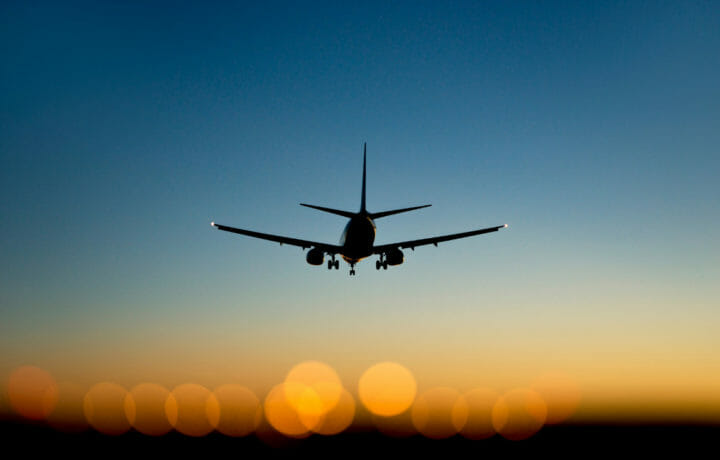Cleared professionals don’t just carry phones. They carry risks. Whether you are headed to a government meeting overseas or just visiting family abroad, your smartphone is a high-value target. Foreign intelligence services, criminal syndicates, and even opportunistic hackers see mobile devices as windows into your professional and personal life. If you are not securing your phone before you travel, you are effectively handing out copies of your passport, travel itinerary, and inbox to adversaries.
This is not paranoia. It is protocol. And the good news is, there are tools that can help.
Start With the Basics: Your Phone’s Passcode and Physical Security
Before getting to digital hygiene, start with physical security. This means:
- Use a strong passcode. Avoid 4-digit PINs or facial recognition that can be bypassed
- Disable biometric unlock when crossing borders, especially in countries with weak legal protections
- Enable auto-wipe after a set number of failed login attempts
- Turn off Bluetooth and disable auto-connect features for Wi-Fi
Treat your phone like a classified folder. If you would not leave that on a hotel bed, do not leave your phone unlocked.
Strip It Down: Remove Sensitive Apps and Data Before You Travel
One of the most overlooked travel security steps is data minimization. If your phone is lost, seized, or cloned, what will someone find?
- Delete work apps, multi-factor authentication tools, and secure messaging apps you will not need abroad
- Offload sensitive documents and back them up securely instead of keeping them on your device
- Consider traveling with a “burner phone” that contains only essential tools and no unnecessary data
Cleared professionals should treat every international trip like a red-team exercise. If your device were compromised, how much damage could it do?
Use a VPN, But Choose Carefully
A virtual private network (VPN) is essential for encrypting your web traffic and masking your IP address. This is especially important when connected to hotel Wi-Fi or public hotspots. Not all VPNs are trustworthy.
- Choose a reputable VPN provider based in a country with strong privacy laws, ideally one within the Five Eyes community
- Avoid free VPNs, which often log user data or are operated by firms in adversarial nations
- Always confirm the VPN is connected before sending sensitive data
A quality VPN can prevent your traffic from being monitored. A poor one might invite surveillance.
Secure Browsers and Private Modes Are Smart, Not Paranoid
Browsers are rich sources of intelligence. From autofill entries to saved passwords, your digital trail can give up more than you realize.
- Use a secure browser such as Brave or Firefox Focus with tracking protections enabled
- Clear cookies and cache regularly
- Avoid logging into sensitive accounts unless absolutely necessary
If you must access anything work-related, use a secure browser in private mode without saved credentials.
Password Managers: Safer Than Your Memory
You will likely need to log into an account during your trip. Do not carry a written list of passwords and do not reuse the same ones across platforms.
- Use a trusted password manager such as Bitwarden or 1Password
- Protect it with a strong master password and multi-factor authentication
- Download an encrypted offline copy of your vault in case internet access is blocked or filtered
Password managers are not just for convenience. They are a critical part of your mobile security toolkit.
Encryption Tools: Protect What You Must Carry
Sometimes, carrying data is unavoidable. Whether it is work notes, research, or important documentation, that data needs to be encrypted.
- Use file encryption tools like VeraCrypt to create secure file containers
- Confirm that your device has full-disk encryption enabled
- Avoid syncing files to cloud platforms while overseas, especially in countries with state surveillance
Encryption will not stop a motivated adversary from trying to access your files, but it can stop them from succeeding.
Messaging Apps Like Signal Are Essential, But Also a Signal
Signal is widely considered the gold standard for secure messaging. It is encrypted, open-source, and used by professionals in sensitive environments. However, in some countries, having it installed may invite unwanted attention.
- In countries with hostile counterintelligence services, Signal may trigger extra scrutiny
- Metadata, such as app installation or contact connections, can raise red flags
- If traveling to high-risk regions, consider uninstalling Signal before arrival and reinstalling it after returning home
Security is always contextual. What protects you in one country could make you stand out in another.
Final Thought: Assume You Are Being Watched
If you hold a clearance or work in a sensitive field, your smartphone is not just a device. It is a vulnerability. International travel increases your exposure and makes your device more attractive to hostile actors.
Fortunately, the tools to secure your phone are available and effective. But they only work if you take the time to use them before someone else does.




